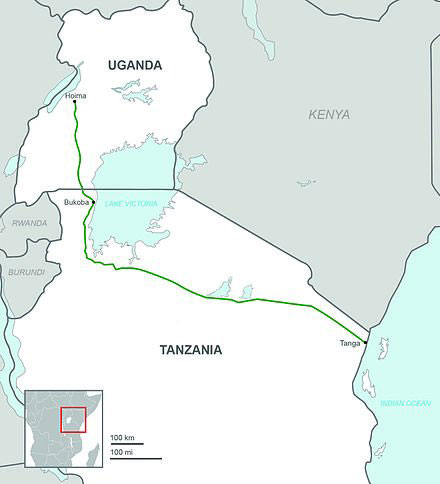
Kampala, Uganda | THE INDEPENDENT | The Environmental Social Impact Assessment (Esia) report for the East Africa Crude Oil Pipeline (EACOP), has been finalized and handed over to the National Environmental Management Authority (NEMA). The move signals a major milestone in the impending approval of the project.
The study conducted by a United States firm; Gulf Interstate Engineers is intended at evaluating the potential environmental and social risks and opportunities arising out of the oil pipeline project and prescribe mitigating measures where necessary.
“We can confirm receipt of the Environmental and Social Impact (ESIA) Report for the East African Crude Oil Pipeline (EACOP) Project,” the environment watchdog tweeted through its official handle. The tweet is accompanied by pictures of the ESIA Project Director, Maxine Marchenko, handing over copies of the ESIA to NEMA Director for Environment Monitoring and Compliance, Waiswa Ayazika.
NEMA further states that in the next set of days, their Oil and Gas Team will review the ESIA report to ensure that the joint venture partners and developers Total, China National Offshore Oil Company (CNOOC) and Tullow have the essential mitigation measures to ensure that the project does not affect the environment significantly.
The completion and approval of the report will pave way for the construction of the 1,445-kilometre pipeline from Kabale-Hoima in Uganda to the Chongoleani peninsula near Tanga Port in Tanzania. Construction of the pipeline is expected to take at least three years.
The pipeline is expected to cost USD 4 billion (15 trillion Shillings) and planned to transport 216,000 barrels of crude oil per day. Due to the viscous and waxy nature of Uganda’s crude oil, the pipeline will need to be heated along the entire route making the East African Oil Pipeline the longest electrically heated oil pipeline in the world.
Completion of the ESIA report is significant in the sense that it comes ahead of the Final Investment Decision on oil and gas development which is expected to be announced towards the end of the first quarter of 2019.
According to earlier negotiations, Uganda will pay Tanzania USD 12.20 (45,000 Shillings) per barrel of oil. But controversy has arisen after the joint venture partners now want the cost per barrel of crude oil to be increased to over USD 15 (55,000 Shillings).
Although Uganda is interested in its own oil refinery to supply the domestic and regional markets, the joint venture partners are more keen on the crude oil pipeline because exported crude oil gives them more value. Uganda has 1.4 billion barrels of recoverable oil, now expected to come in 2022.
The development comes a day before a high level meeting between Uganda and Tanzanian officials to discuss matters on the joint pipeline project. The five-day ministerial meeting starting on Monday, January 21, will review operations and supervision of the project in view of the different laws in the two countries.
Other pending issues are the registration of companies to be involved in the project, distribution of revenue, issues related to defence and security for both countries, and citizen participation in the implementation of the project.
******
URN
 The Independent Uganda: You get the Truth we Pay the Price
The Independent Uganda: You get the Truth we Pay the Price



